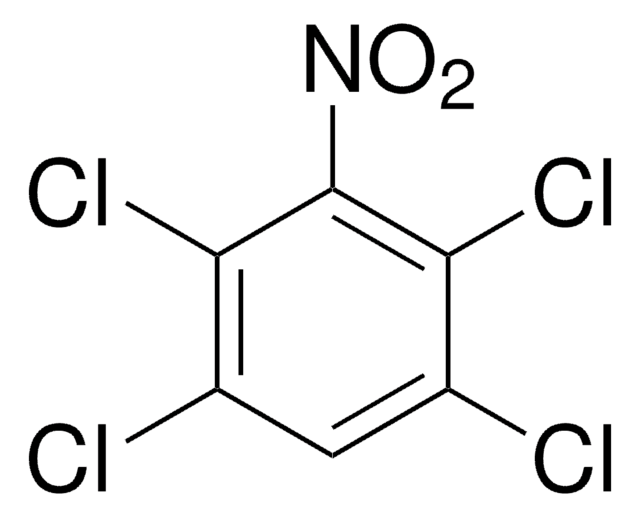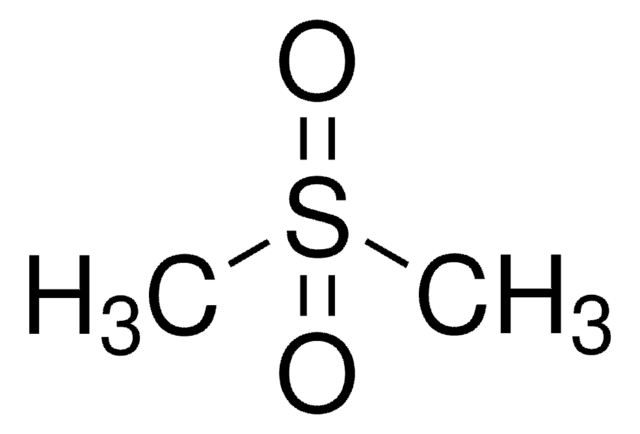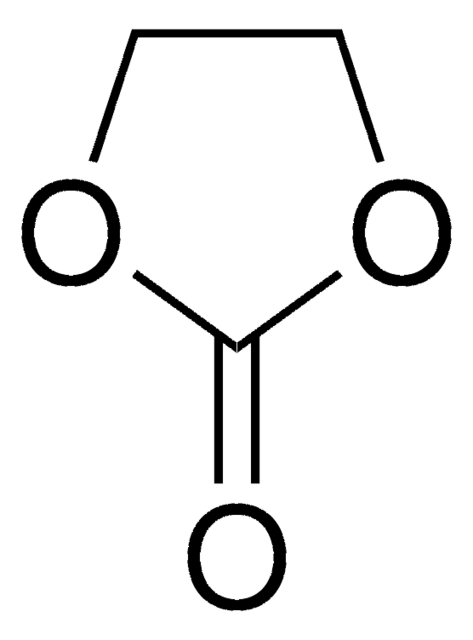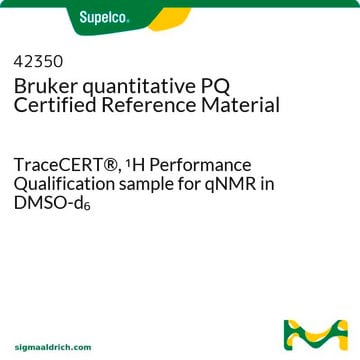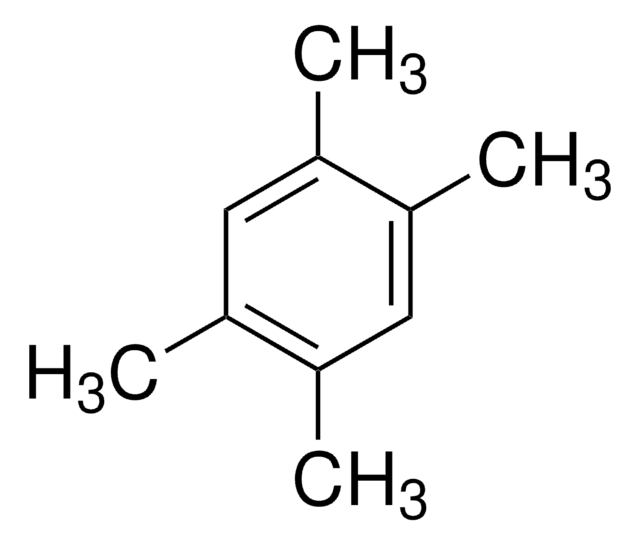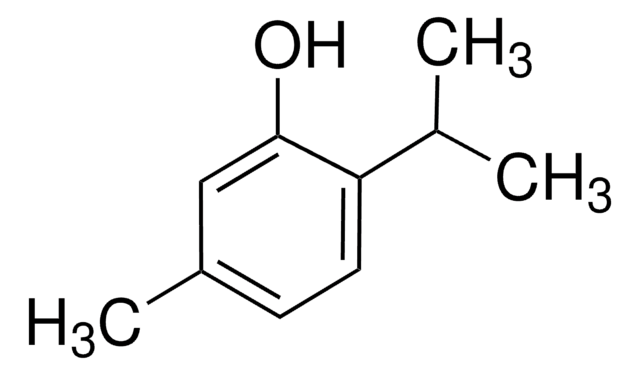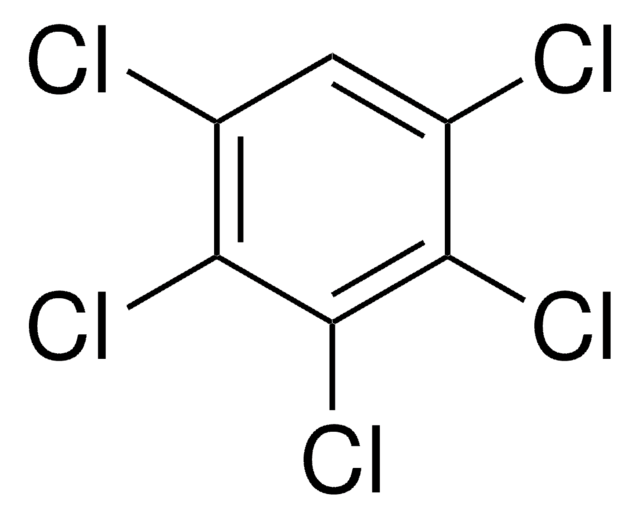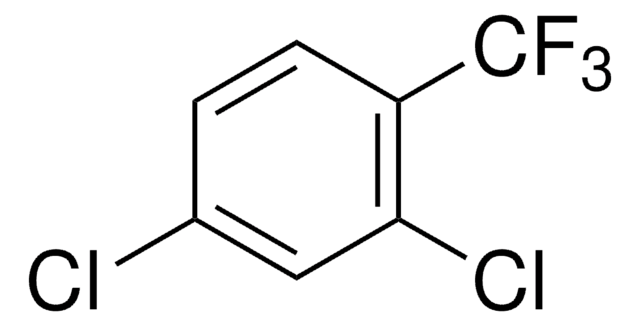01380
Ethylene carbonate
Standard for quantitative NMR, TraceCERT®, Manufactured by: Sigma-Aldrich Production GmbH, Switzerland
Synonym(s):
1,3-Dioxolan-2-one
About This Item
Recommended Products
grade
Standard for quantitative NMR
TraceCERT®
Quality Level
vapor density
3.04 (vs air)
vapor pressure
0.02 mmHg ( 36.4 °C)
shelf life
limited shelf life, expiry date on the label
manufacturer/tradename
Manufactured by: Sigma-Aldrich Production GmbH, Switzerland
technique(s)
qNMR: suitable
bp
243-244 °C/740 mmHg (lit.)
mp
35-38 °C (lit.)
density
1.321 g/mL at 25 °C (lit.)
application(s)
cleaning products
cosmetics
flavors and fragrances
food and beverages
personal care
pharmaceutical
storage temp.
2-8°C
SMILES string
O=C1OCCO1
InChI
1S/C3H4O3/c4-3-5-1-2-6-3/h1-2H2
InChI key
KMTRUDSVKNLOMY-UHFFFAOYSA-N
Looking for similar products? Visit Product Comparison Guide
General description
Application
- Enhancement of chiral synthesis: Ethylene carbonate is utilized as a solvent in iridium-catalyzed asymmetric synthesis processes, improving the production of chiral N-substituted 2-pyridones, which are valuable in pharmaceutical applications (Wang et al., 2024).
- Corrosion behavior in battery electrolytes: Studies on the corrosion behavior of aluminum current collectors in LiFSI electrolytes highlight the role of ethylene carbonate in enhancing the stability and efficiency of battery electrolytes (Yuan et al., 2024).
- High-safety quasi-solid-state batteries: Research involving in situ polymerization facilitated by ethylene carbonate leads to the development of practical high-safety quasi-solid-state batteries, enhancing energy storage technologies (Rui et al., 2024).
- Voltage oscillation in sodium-ion batteries: Ethylene carbonate′s properties are critical in understanding and managing voltage oscillation in sodium-ion batteries, particularly in extreme conditions such as operating at -40 °C (Que et al., 2024).
- Long-life cycling of lithium-metal batteries: The use of ethylene carbonate in in situ polymerized quasi-solid electrolytes compounded with ionic liquid contributes to the long-life cycling and operational stability of high-voltage (4.45 V) lithium-metal batteries (Ma et al., 2024).
Recommended products
Legal Information
related product
Signal Word
Warning
Hazard Statements
Precautionary Statements
Hazard Classifications
Acute Tox. 4 Oral - Eye Irrit. 2 - STOT RE 2 Oral
Target Organs
Kidney
Storage Class Code
11 - Combustible Solids
WGK
WGK 1
Flash Point(F)
289.4 °F - closed cup
Flash Point(C)
143 °C - closed cup
Choose from one of the most recent versions:
Already Own This Product?
Find documentation for the products that you have recently purchased in the Document Library.
Customers Also Viewed
Articles
NMR shift charts assist in identifying impurities in deuterated solvents, aiding accurate chemical analysis.
Learn about ChemisTwin® Portal, an online analytical spectra interpretation tool. Discover its NMR lab benefits, workflow integration, and user responsibilities. Explore dRMs, algorithm accuracy, data formats, subscription possibilities, and more.
Related Content
ChemisTwin automates NMR result interpretation, saving time with structure confirmation and quantitative NMR measurements using electronic Reference Materials.
Our team of scientists has experience in all areas of research including Life Science, Material Science, Chemical Synthesis, Chromatography, Analytical and many others.
Contact Technical Service


